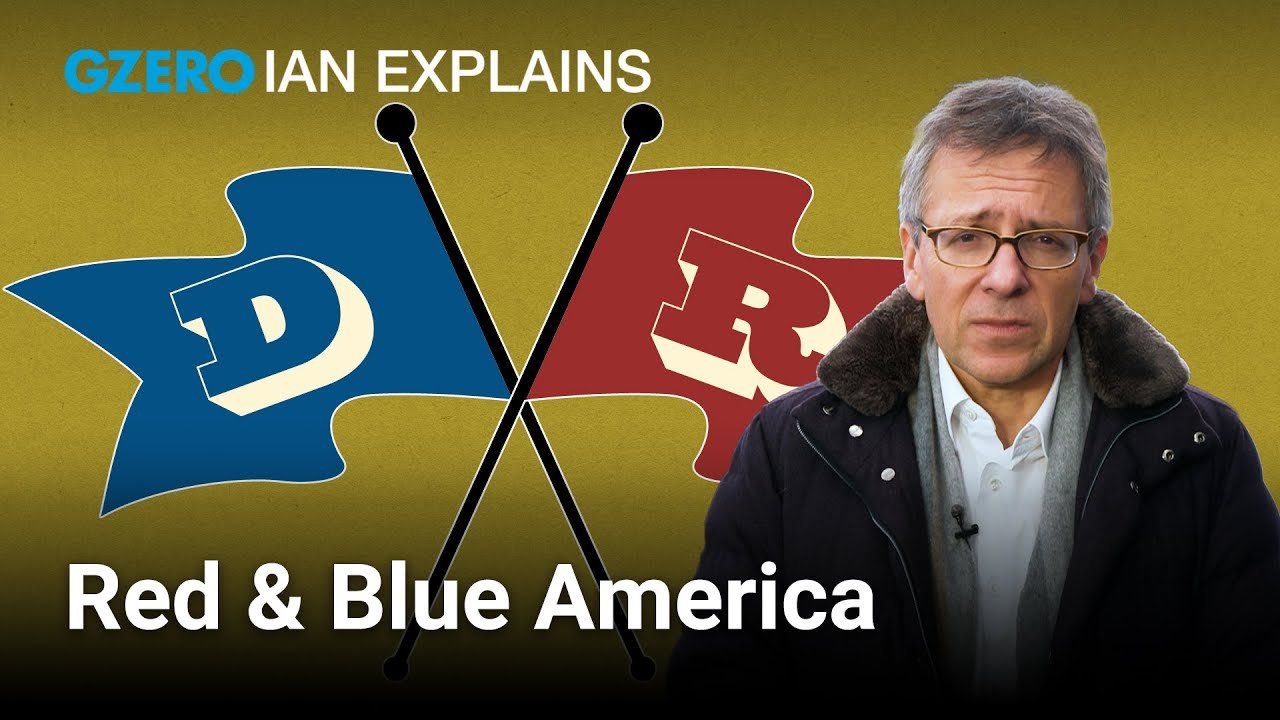Ian Explains
Ian Explains: How the US turned red and blue

Ian Explains: How the US turned red and blue | GZERO World with Ian Bremmer

Do you live in a red state or a blue state? Until fairly recently, such a question would have been nonsensical in the US. Ian Bremmer rolls back the clock on GZERO World to take a look.
On November 4, 1980, NBC News became the first major network to call the presidential election for Ronald Reagan. What stands out about this clip is not the absolute drubbing that President Carter received, but those colors on that map. States that had gone for Reagan are blue, states yet to be decided are that sickly 1980s yellow, and lonely little Georgia, which native son Jimmy Carter had managed to hold on to, is red.
It wasn’t, in fact, until the contested 2000 election between then Vice President Al Gore and Texas Governor George W Bush that major news networks agreed on a standard red-state-Republican // blue state-Democrat map scheme. That’s right, one of the most iconic signifiers of Republican or Democrat identity—second only to the elephant and donkey—is a modern invention, and one borne out of confusion.
Al Gore’s legacy will forever be tied to his fateful decision to put the peaceful transfer of power over his personal ambitions. He was also acknowledging a shared reality, as unpalatable as it might have been for himself, where George W Bush would be the next president of Red and Blue states, alike.
Tune in on Saturday, February 14th at 12pm ET/6pm CET for the live premiere of our Global Stage from the 2026 Munich Security Conference, where our panel of experts takes aim at the latest global security challenges.
Think you know what's going on around the world? Here's your chance to prove it.
At the Munich Security Conference, the mood is clear: Europe no longer assumes the United States will lead. In this Quick Take, Ian Bremmer reports from Munich, where this year’s theme, “Under Destruction,” reflects growing anxiety that the US itself is destabilizing the transatlantic alliance it once anchored.
Every year, the Munich Security Conference, the world’s leading forum on international security, releases data that sheds light on how citizens view global risks.